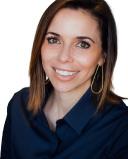Genetics
How Beliefs Developed Early in Life Lead to Health Anxiety
Learn how your experiences have shaped your view of health and illness.
Posted March 24, 2023 Reviewed by Tyler Woods
Key points
- People with health anxiety hold dysfunctional core beliefs about health and illness.
- Core beliefs develop early in life and are strengthened through a process of reinforcement.
- It can be helpful to identify significant life experiences that led one to develop dysfunctional core beliefs about health.
- Once dysfunctional core beliefs are identified, one can reshape them through cognitive restructuring.
Core beliefs are deeply ingrained beliefs we hold about ourselves, others, the future, and the world. They develop early in life through significant experiences. Core beliefs play a powerful role in how we process information. Once they develop and are set in motion, core beliefs are continuously reinforced throughout the rest of childhood and into adulthood. This is because we selectively attend to information that confirms our beliefs and ignore or dismiss information that does not support them. Due to these processes, our beliefs only get stronger over time.
Examples of several dysfunctional core beliefs associated with health anxiety:
- Beliefs that one is likely to get a serious disease, more than is statistically probable.
- Beliefs that one is weak and especially prone to sickness and disease.
- Beliefs that the symptoms and physical sensations associated with anxiety are dangerous or indicative of health problems.
- Beliefs that one must be completely symptom-free in order to be healthy.
- Beliefs that medical professionals, tests/examinations, and treatments are incompetent, invalid, or ineffective.
- Beliefs that death will inevitably be a horrifying experience and one won’t be able to cope with it.
My personal example of how I developed dysfunctional beliefs about health
I am a therapist and treat health anxiety with cognitive behavioral therapy (CBT). But I also have a long personal history of dealing with health anxiety myself. Thanks to CBT, I am in a much different place today. I'm grateful to be able to help my clients work through similar issues that I have dealt with myself.
All that said, let’s take a peek into my own history in the hopes that it might shed some light on how significant events in our lives can shape how we see health and illness.
Throughout my entire childhood, my mother was very sick. She had migraines that would last for days and often made her throw up. As a single mother, she had to work but she spent a great deal of her non-work time in bed because the pain was unbearable. Looking back, I don’t have very many memories of her without a headache. She rarely complained about it but I knew she was in pain just by looking at her face. I remember the doctors saying her headaches seem to go beyond just migraines but they couldn’t figure out what was causing them. Over the years, they ran every scan and blood test possible and were unable to identify a cause.
When I was 16, she died from an overdose of her pain medication.
These experiences with my mother led me to develop maladaptive beliefs about health and illness at a very young age, such as that:
- Serious disease is everywhere and unavoidable.
- The field of medicine is incapable of treating diseases.
- I am weak and vulnerable to disease.
- Uncertainty about health is dangerous and unacceptable.
It didn’t take long for my health anxiety to kick in. Around age 9 or 10, I began to believe that serious diseases were extremely common and that those that aren’t plagued with a debilitating illness were among the lucky few. After all, if my only parent is sick, then so many others out there must be experiencing something similar.
I also began to assume that if someone is sick, then it is likely to be very serious and eventually terminal. Even though my mom had migraines, she had everything else going for her in the health department. She was young, took care of herself, had good genes, followed all of the doctor’s orders and, yet, she still died. So I concluded that if one is diagnosed with anything, they are as good as dead.
Once these health-related beliefs were solidified, then the process of reinforcement began. Essentially, I would scan my environment and selectively attend to all the pieces of “evidence” that supported my belief system.
- I paid special attention to situations when one of our relatives got sick or when I learned that a friend’s family member was sick or dying.
- I read all about various diseases in medical texts.
- I was overly focused in health class and became especially interested in the most deadly diseases we covered.
- I watched as many tragic movies and TV shows about the sick and dying as I could get my hands on.
I was so busy seeking out sickness and death that I failed to acknowledge that, aside from my mom, everyone in my life was pretty healthy and, well, alive.
Of course, these beliefs just progressively strengthened over the years. How could they not? In the world I had created for myself through all these activities, everyone was sick and dying! I remember at one point as a teenager, I thought how lucky I was that I had escaped sickness and death. I laugh at that now. Here I was, a young person with virtually no health issues and I believed that my survival was some kind of miracle. It demonstrates just how biased and inaccurate my thinking had become through this whole process.
Look at your life through this lens and see what you find.
Your own life experiences that contributed to your health anxiety may not be as obvious or cliche as mine. But I am guessing if you did some digging, you’d find some situations or events that have significantly impacted you. Your health anxiety is likely the culmination of a variety of experiences. It can be helpful to understand what triggered the development of inaccurate beliefs, but it is much more important to identify what your beliefs are and how they have been (and are currently being) reinforced in your life.
Beliefs are not permanent.
On a final note, I must emphasize that you are not stuck with these beliefs. Beliefs can be reshaped. Doing so involves retraining or rewiring your brain to learn how to process information differently. You first learn how to identify all of the pieces of “evidence” that you think support your maladaptive or unhelpful belief. You then take the opportunity to reframe some of these pieces of evidence and/or challenge any inaccurate assumptions. Next, you learn how to identify evidence for a new, healthier, and more adaptive belief about health. This is accomplished through cognitive restructuring, a cognitive behavioral therapy technique.
To find a therapist near you, visit the Psychology Today Therapy Directory.




